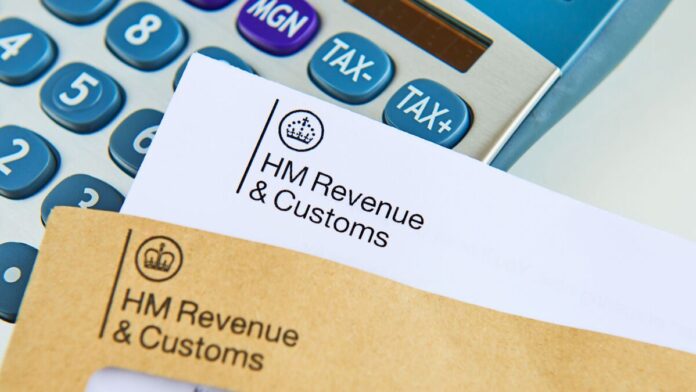For any UK business, the letters HMRC wage raid payroll checks can induce a sense of dread. That feeling is often magnified when you receive a notification of a “PAYE compliance check,” informally known in the business world as a “Wage Raid.”
Despite its aggressive nickname, a wage raid is not always a sign of deliberate wrongdoing. It is, however, a serious and detailed examination of your payroll processes by HM Revenue & Customs. Understanding what it is, why it happens, and how to prepare is crucial for any employer.
What is a Hmrc wage raid payroll checks?
A HMRC Wage Raid is a comprehensive inspection of a company’s payroll records and PAYE (Pay As You Earn) system. Its primary purpose is to ensure that the correct amount of Income Tax and National Insurance Contributions (NICs) is being deducted from employees’ pay and paid over to HMRC.
These checks can be conducted remotely (where you send records to HMRC) or on-site (where HMRC officers visit your business premises). They can target specific issues or be a full-scale review of your entire payroll function for a given period, often going back up to 4 years, or 6 in cases of suspected carelessness.
Why Would HMRC Target My Business?
HMRC doesn’t need a specific reason to launch an enquiry, but certain “red flags” can trigger a compliance check:
- Late or Inaccurate PAYE Submissions: Consistently filing Full Payment Submissions (FPS) late or making frequent amendments.
- Industry-Specific Campaigns: HMRC often targets sectors known for cash payments and non-compliance, such as construction, hospitality, catering, and security.
- Discrepancies in Returns: Mismatches between the figures on your P35 (End of Year Summary) and the sum of your monthly/real-time FPS submissions.
- Whistleblowing: A tip-off from a disgruntled current or former employee.
- Random Selection: Sometimes, a business is simply selected at random for a routine check.
- Complex Pay Structures: The use of bonuses, benefits-in-kind, expenses, and allowances that are often miscalculated.
- Worker Status Disputes: HMRC may investigate if they suspect “disguised employment,” where contractors (off-payroll workers) should legally be classified as employees.
The Key Areas HMRC Will Examine
During a wage raid, HMRC officers will meticulously scrutinise several key areas. Their goal is to find any instance where tax or NICs have been underpaid.
1. Employee vs. Self-Employed Status (IR35)
This is a major focus area. HMRC will check that individuals paid as self-employed contractors are not, in fact, working under terms that make them employees for tax purposes.
2. Expenses and Benefits-in-Kind
They will ensure that all taxable benefits (like company cars, private medical insurance, or travel allowances) have been correctly reported on forms P11D and that the appropriate tax has been paid.
3. National Minimum/Living Wage (NMW/NLW) Compliance
While primarily a matter for the Department for Business and Trade, HMRC can check that all workers are being paid at least the legal minimum, as underpayment can affect tax and NIC calculations.
4. Record-Keeping and Accuracy
HMRC will demand to see:
- Payroll records (including gross pay, deductions, and net pay).
- Timesheets and clocking-in records.
- Details of any loans or advances to directors or employees.
- Evidence of payments to subcontractors (CIS records if applicable).
5. Directors’ Pay
They will scrutinise how directors are remunerated, especially if they receive a low salary and high dividends, to ensure the salary meets the National Insurance Lower Earnings Limit and that the overall remuneration is justifiable hmrc wage raid payroll checks.
The Consequences of Failing a PAYE Compliance Check
The outcome of a wage raid can be severe, both financially and reputationally:
- Financial Penalties: You will be required to pay all underpaid tax and NICs, plus interest. HMRC can also levy substantial penalties, which can be as high as 100% of the underpaid amount if the error is deemed deliberate and concealed.
- Naming and Shaming: For severe National Minimum Wage breaches, the government can publicly “name and shame” the business.
- Criminal Prosecution: In cases of extreme, deliberate fraud, criminal proceedings can be initiated.
- Increased Scrutiny: Once you have been investigated, HMRC is likely to monitor your future submissions much more closely.
How to Prepare and Survive a Wage Raid
The best defence is a robust, compliant payroll system.
- Keep Impeccable Records: Ensure all payroll, timekeeping, and expense records are complete, accurate, and stored securely for at least the last 6 years.
- Conduct Internal Audits: Regularly review your own payroll processes. Are you confident about the status of your workers? Are all benefits being reported correctly?
- Seek Professional Advice: Use a qualified accountant or payroll bureau. Their expertise is invaluable, especially for complex areas like IR35 and benefits-in-kind.
- If You Receive a Notice:
- Don’t Panic. Inform your accountant or payroll advisor immediately.
- Cooperate Fully. Provide the information HMRC requests in a timely and organised manner. Obstructing an officer can lead to higher penalties.
- Be Prepared. Have all relevant records ready and easily accessible.
- Understand Your Rights. You have the right to be represented by your advisor during the check.
HMRC Wage Raid: At-a-Glance Summary
| Aspect | Key Details |
|---|---|
| What is it? | A HMRC compliance check into a business’s payroll and PAYE systems to ensure correct tax and NICs are being paid. |
| Also Known As | PAYE Audit, Payroll Inspection, Employer Compliance Review. |
| Common Triggers | Late/erratic FPS filings, industry targeting (e.g., construction), worker status disputes, whistleblowing, random selection. |
| Key Focus Areas | <ul><li>Employee vs. Contractor status (IR35)</li><li>Taxation of Expenses & Benefits (P11D)</li><li>National Minimum/Living Wage pay</li><li>Directors’ remuneration</li><li>Accuracy of payroll records</li></ul> |
| Potential Outcomes | <ul><li>Bill for underpaid tax + NICs + interest</li><li>Financial penalties (up to 100% of tax owed)</li><li>Public “naming and shaming” (for NMW)</li><li>Criminal prosecution (in severe fraud cases)</li></ul> |
| Best Defence | <ul><li>Maintain accurate, detailed records for 6+ years.</li><li>Conduct regular internal payroll audits.</li><li>Use a qualified accountant/payroll provider.</li><li>Cooperate fully if investigated.</li></ul> |
| First Action if Notified | Contact your accountant or tax advisor immediately. Do not attempt to handle a complex compliance check alone. |
In conclusion, a HMRC Wage Raid is a formidable process, but it is a survivable one for businesses that prioritise payroll compliance. By maintaining meticulous records, understanding the rules, and seeking professional guidance, you can navigate an inspection with confidence and minimise the risk of costly penalties.



